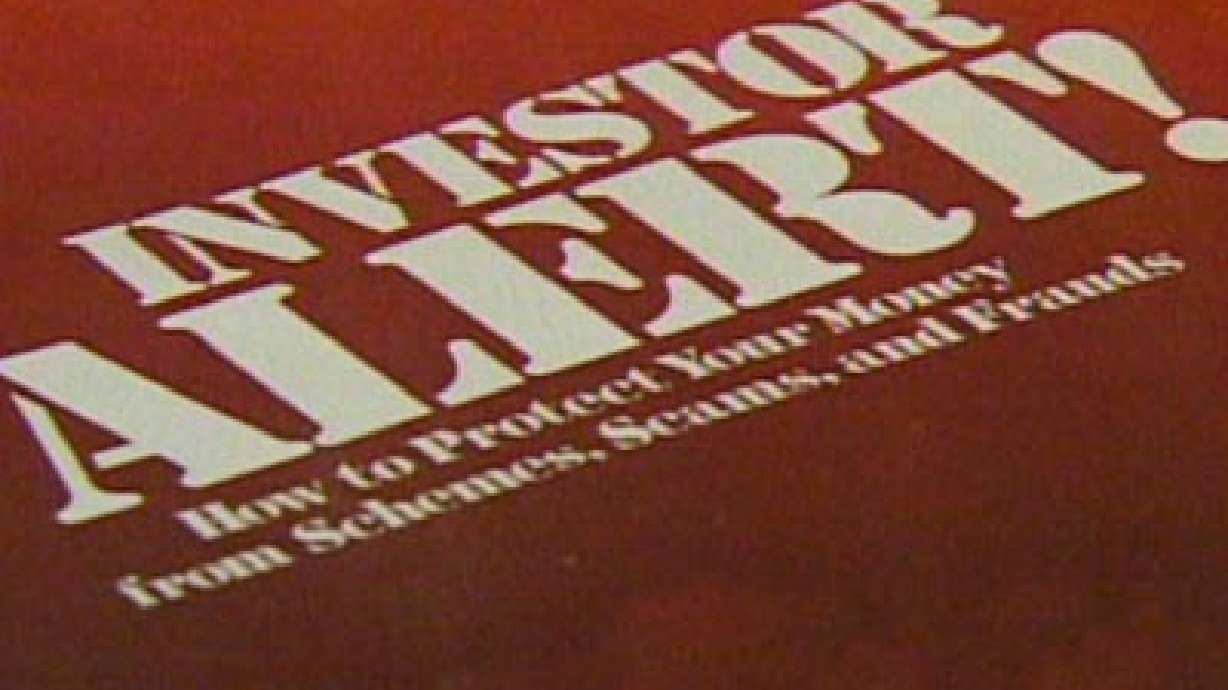Estimated read time: 2-3 minutes
This archived news story is available only for your personal, non-commercial use. Information in the story may be outdated or superseded by additional information. Reading or replaying the story in its archived form does not constitute a republication of the story.
Tonya Papanikolas Reporting The Utah Department of Commerce says Utahns lose more than 50-million dollars a year in investment scams. The department wants to help people avoid that pain, so the director of securities gave us some insight today about what kind of scams people may see in 2006.
Some are scams from last year, some are new. Scam-artists can get creative, sucking people in. The state says it wants to encourage Utahns to invest in legitimate markets. Knowing some of the most common investment scams can help.
Just because you see an ad in the newspaper doesn't mean you should believe it. A clipping was taken from a Salt Lake paper promising wealth to anyone who purchases the new Iraqi dinar. But the government says it's a scam.
Wayne Klein, Director, Utah Division of Securities: “In order to redeem the dinars, you have to go to Iraq."
You may also want to watch for text messages in the new year that seem like they were sent to you accidentally with insider stock information. Buying the stock pushes the price up.
Wayne Klein: “Promoters sell theirs and make money. The stock goes to nothing and you've been duped."
The state says promissory notes were the biggest investment fraud this year and they'll likely continue. Here, you're asked to loan money for a business venture, getting high interest and a promissory note in return. But if you're making an investment, officials say make sure the promoter is licensed to sell securities. Beware of guarantees and make sure you understand what you're investing in.
Wayne Klein: "If you don't understand it well enough to know how it's going to make money or what the fees are, you're going to be at great risk."
One of the new scams is fake websites that vouch for a particular investment. They even have official-looking logos and that make them look like government sites. But if they don't end in dot-gov or dot-us, stay away.
Wayne Klein: "Plus, government websites never vouch for the quality of investments."
Also, keep in mind investments have to be registered. A prospective should lay out what the risks are and where the money is going.









